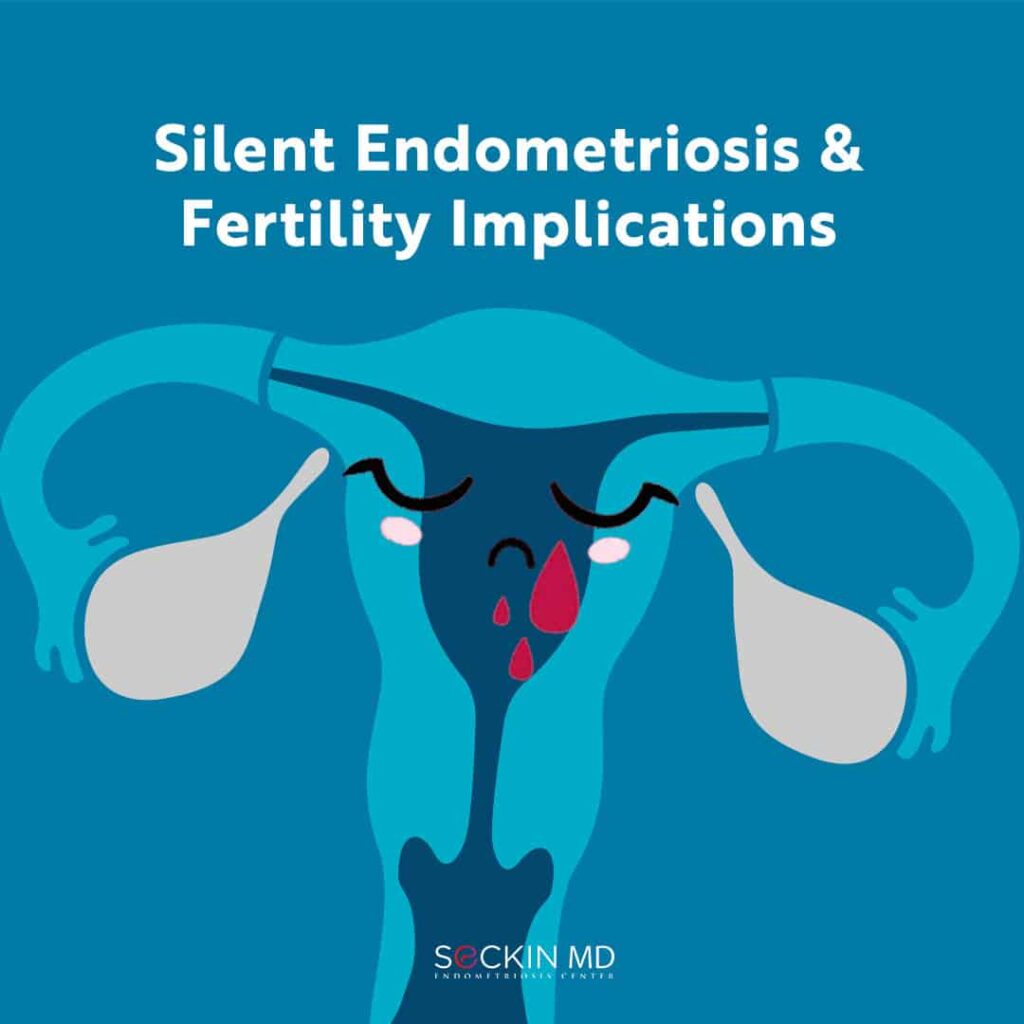Silent Endometriosis & Fertility Implications

Endometriosis is a chronic, progressive disease affecting nearly 176 million women of reproductive age worldwide. Symptoms of endometriosis can include pelvic pain, painful periods, pain during intercourse, abnormal bleeding, gastrointestinal symptoms, and infertility. Some of these symptoms manifest in varied severity irrespective of the stage of the disease.
However, there are cases of endometriosis that goes for many years unnoticed without obvious symptoms. We refer to this as silent endometriosis.
What causes silent endometriosis and why is early diagnosis crucial?
Researchers think that about 20-25% of endometriosis cases are asymptomatic. The exact reason for this is not clear. In silent endometriosis, the disease goes unnoticed for many years and typically presents when a woman tries to get pregnant. These women often have difficulty conceiving and require assisted reproductive techniques (ARTs) such as in-vitro fertilization (IVF). For some women by the time they present, even these techniques will no longer be successful.
Aside from fertility, endometriosis is a progressive disease. If it is not recognized early, some women will present with damage to surrounding organs. These can include the pelvic structures, such as fallopian tubes, or even the bowel and bladder. There are cases where it can invade and/or damage the ureter (the tube that connects the kidney to the bladder) and is a rare cause of permanent damage to a patient’s kidney.
What is unexplained infertility?
Infertility is the inability to conceive even after one year of unprotected intercourse. Doctors evaluate the reasons for infertility on several parameters including assessment of the semen, ovulation, health of the fallopian tubes, and the ovarian reserve. However, in approximately 15-30% of cases, everything seems normal on standard evaluations but fertility still remains elusive. This is called unexplained infertility.
How are endometriosis and unexplained infertility related?
Endometriosis results in an altered state of immunity and inflammation that can make it difficult for the embryo to survive. Therefore, recurrent early miscarriages can also be an indication of silent endometriosis.
Moreover, endometriosis in the ovaries, known as ovarian endometrioma or chocolate cysts, can adversely affect ovarian reserve and egg quality. Research has shown that IVF with eggs taken from women with endometriosis is more likely to fail than with eggs used from women with other causes of infertility.
Finally, endometriosis lesions may damage the fallopian tubes to the point that they are no longer about to function. When this happens, the egg will be unable to travel to the uterus, or worse may fertilize in the wrong location, leading to an ectopic pregnancy.
How can doctors diagnose unexplained infertility due to silent endometriosis?
Laparoscopy deep excision surgery followed by histological evaluation of a biopsy sample is the only way to confirm the presence of endometriosis. The following tools can be used to help facilitate diagnosis.
- CA-125 (Cancer antigen 125) as a marker for abdominal inflammation. This is commonly elevated with endometriomas, aka “chocolate cysts”
- BCL-6 testing, a biopsy of the uterine lining that can be a predictor of chronic inflammation and/or endometriosis
- More sensitive imaging, such as a pelvic MRI or targeted sonogram performed by a knowledgable radiologist
These tests must be evaluated in the appropriate clinical context and should not be used without physician guidance.
How do we treat silent endometriosis?
Laparoscopic deep excision surgery performed by a skilled surgeon is the gold standard to completely remove endometriosis lesions. Our patented Aqua Blue Contrast (TM) technique maximizes the proper identification and complete excision of endometriosis lesions.
If endometriosis affects the ovary, the surgeons at the Seckin Endometriosis Center (SEC) will reconstruct the organ in order to preserve the maximum number of healthy follicles.
Have you been suffering from silent endometriosis? Please share your story by leaving a comment on our post on Facebook or Instagram if you wish to.
Get a Second Opinion
Our endometriosis specialists are dedicated to providing patients with expert care. Whether you have been diagnosed or are looking to find a doctor, they are ready to help.Our office is located on 872 Fifth Avenue New York, NY 10065.
You may call us at (646) 960-3080 or have your case reviewed by clicking here.